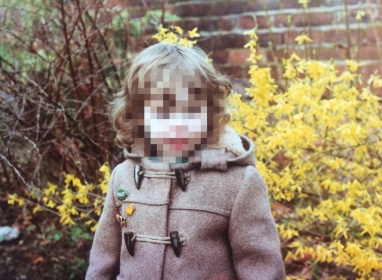
This week, The Secret Life of 4 Year Olds came back to UK television screens. The programme shows children covertly filmed in a nursery school, taking part in games and activities led by adult practitioners. Whilst playing they are remotely observed by educational psychologists, who offer their commentary and analysis on the children’s behaviour. Undoubtedly the series could be considered a useful source of information for learning about young children and their capabilities. It may have contributed to young children being viewed as more active and powerful by a wider portion of society.
Yet we’ve reflected on the irony of the programme’s title –broadcasting these children’s experiences on national television makes their lives anything but secret. Their actions are seen by millions of viewers as they unwittingly take part in experiments at the hands of the educational psychologists. It got us thinking about how videos and images of children are shared via media sources like television and on social media and whether it’s appropriate to do so without the child’s informed consent. And if the young child does say yes to being filmed, do they fully understand what the implications of the footage could be in adulthood? We don’t think we can say for certain what the consequences might be.
A study by Nominet in 2016 found that on average every year UK parents share almost 300 photos of their children online and of other people’s children 30 times, although research by Ofcom in 2017 found that 56% of parents in the UK say that they do not share photos of videos on their children via social media. You may have you own opinion about whether it’s appropriate to share and distribute images and videos of children in a digital way. Is it okay as long as their parents think it’s okay? At what age would you judge a child as competent to make their own decision? In Austria, one teenager has attempted to sue her parents for not removing her childhood photos from Facebook. In France, sharing intimate photos of children on social media without their consent could lead to a €45,000 fine and prison sentence.
Many will argue that sharing photos and videos via social media of children is a good way for people who live far away from their young relatives to keep up with what they are doing and how they are growing. Rooney (2012: 334) claims that this normalises surveillance of children in other aspects of their lives. For instance, a growing number of early years settings use CCTV like NurseryCam to allow parents to live stream what is happening in their child’s nursery via an online log-in. Do you think it’s okay for children’s daily lives to be monitored in this way? Some people believe that this offers parents reassurances about their child’s safety. Others think that children’s privacy is being violated.
What do you think? Is it okay for photographs, videos and documentaries of young children to be distributed via the Internet, social media and television? What do you think the repercussions might be when these children grow up? And what should we do about the photographs of children that are featured on past blog posts?!

The secret life of 4 year olds’ offers a unique insight in to children allowing us as adults to see children in a new light. I suppose the difference between this programme and parents posting images and photos of children on line may be one of,not just privacy, but also of safeguarding. I attended safeguarding training in a school and most children said they did not like it when their parents posted pictures or videos of them; they were also able to recognise how it could compromise their own safety on line. In these days of social media, photos and videos do not just stay within the realms of family and friends so we all need to be more thoughtful about what we share and how we share it…including broadcasters.
LikeLike
Thank you for your comment Paula. It is interesting, and important, to hear the voice of the child on this.
LikeLike
Pingback: Children’s digital footprints – Contemplating Childhoods
Pingback: Keeping children safe online – Contemplating Childhoods